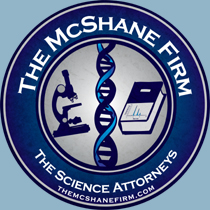Beer Born On Date Everyone wants to eat fresh food as opposed to stale food. No one wants to drink skunked beer. So, we have born-on dates on certain foods and foodstuff. This allows us to judge whether or not we want to accept it and drink/eat it. Carrier gas purity is a big issue […]

The Problem of Modern Forensic Science: Novices can become experts at the push of a button
I have lamented before about the horrible state of affairs that has developed in modern forensic science and in particular instrumentation. As an industry, the machine manufacturers seek to automate and make these processes so simple that they no longer require true understanding of the underlying science or the process that makes the machine do […]

Emerging technology at the airport: Mass Spectrometry in the Hands of TSA
GE EntryScan is a type of newer technology EntryScan is the result of a successful five-year partnership between GE, the Pennsylvania State University Gas Dynamics Laboratory and the FAA/TSA. This research effort was based on the concept of understanding the natural airflow around the human body. In April 2003, the TSA confirmed that the EntryScan […]

Standards, Controls, Calibrators, and Verifiers, Oh my…
Lions and Tigers and Bears… Verifiers, Calibrators and Controls… Oh my! Sometimes a criminal defense attorney can at times feel like Dorothy in the Wizard of Oz in that we are transported from the relative safety of home (the courtroom) to the weird world of Oz (the laboratory). There are unusual and often times conflicting […]

Why single column Gas Chromatography-Flame Ionization Detector analysis is not forensically or scientifically acceptable
There is a large difference between a single column analysis and a dual column analysis when it comes to the ability to most correctly identify and quantitate an unknown in the scientific world. In forensic science, we are constantly testing unknowns. What is meant by this is that we have a sample that is seized […]

Police Science: Re-purposing of Capilliary Columns for Drugs of Abuse testing
As I have written before a lot of forensic science is really legitimate analytical chemistry that is re-purposed for the courtroom, but without proper scientific method validation before deploying it into this new purpose. This re-purposing of legitimate techniques and employing them without examining the true validity of doing so is not scientific. I call […]

Co-elution in a nutshell
Co-elution is a very important concern in forensic chromatography. In a nutshell co-elution can be defined as when non-resolved (non-separated) compounds elute (come off) the column at the same time. It comes comes in two forms: (1) lack of specificity (inter-sample co-elution), and (2) analytical carry-over (intra-sample co-elution). Lack of specificity: A Gas chromatograph is […]

A Gas Chromatoagraph or Liquid Chromatograph is not like a calculator
I am fond of pointing out that a Gas Chromatograph (GC) and a Liquid Chromatograph (LC) are not like a simple calculator where anyone walking up to a calculator regardless if it is a 2 year old or a PhD in mathematics who keys in 2+2, the result will always be 4, it requires interpretation […]

Risky Business: Direct Liquid Injection Gas Chromatography
Believe it or not, some testing labs who perform EtOH analysis still use direct liquid injection Gas Chromatography instead of headspace. When I say believe it or not, you will see by the end of this post that it is foolish to perform direct liquid injection especially looking for what is already a volatile organic […]

Mass Spectroscopy for Lawyers Part 9: Other topics of interest in GC-MS
In a series of posts, we are going to talk about Mass Spectrometry. Introduction-The different configurations and the Electron Impact process What types of mass analyzers are there? What type of detectors are there? What types of analysis can be done? How do you read the output? How do they come to a qualitative measure […]

Mass Spectroscopy for Lawyers Part 8: A scientific war, between spectroscopists and chromatographers is co-eution a problem in hyphenated MS work?
In a series of posts, we are going to talk about Mass Spectrometry. Introduction-The different configurations and the Electron Impact process What types of mass analyzers are there? What type of detectors are there? What types of analysis can be done? How do you read the output? How do they come to a qualitative measure […]


